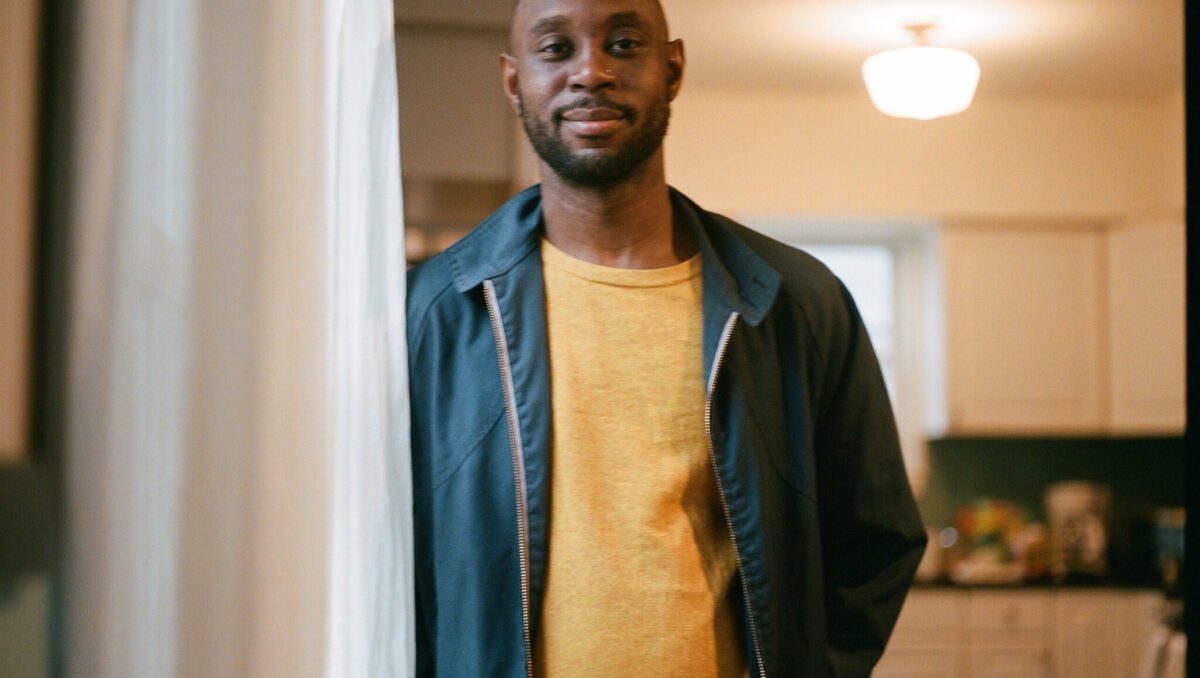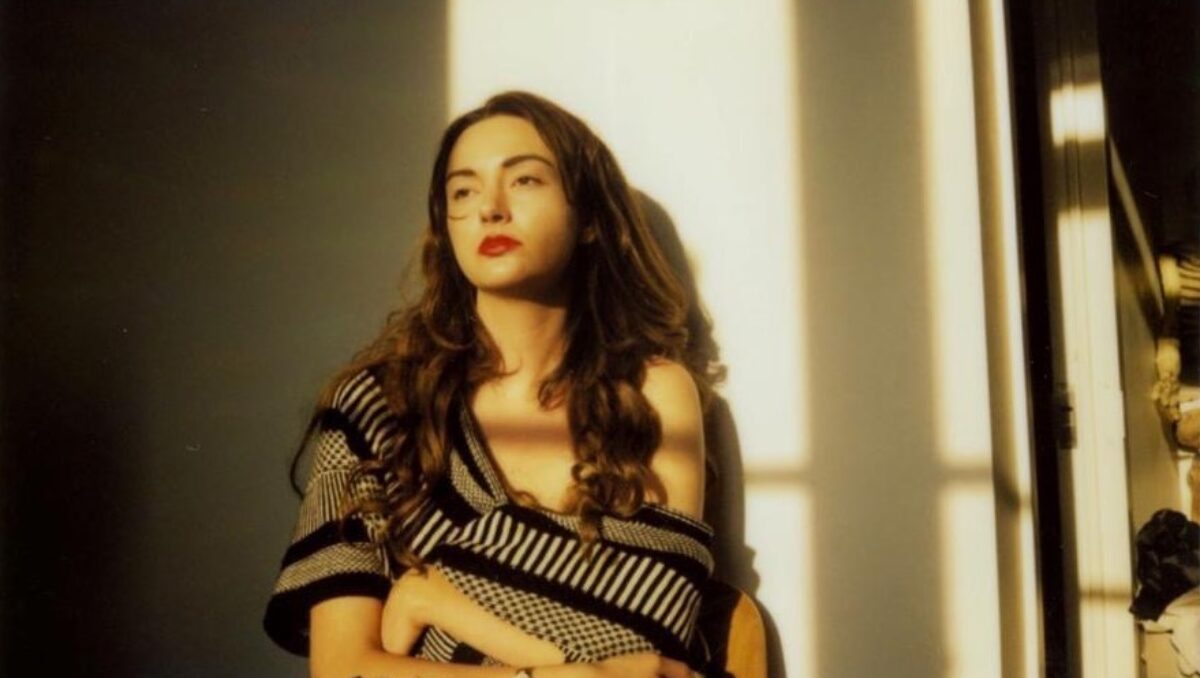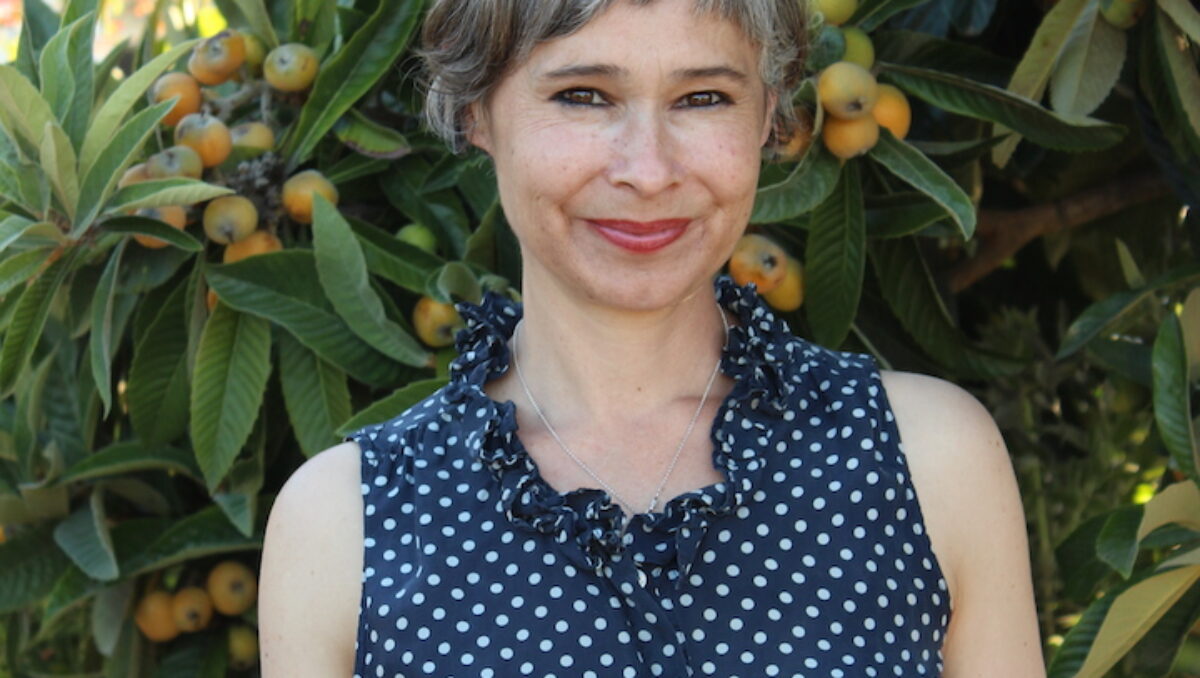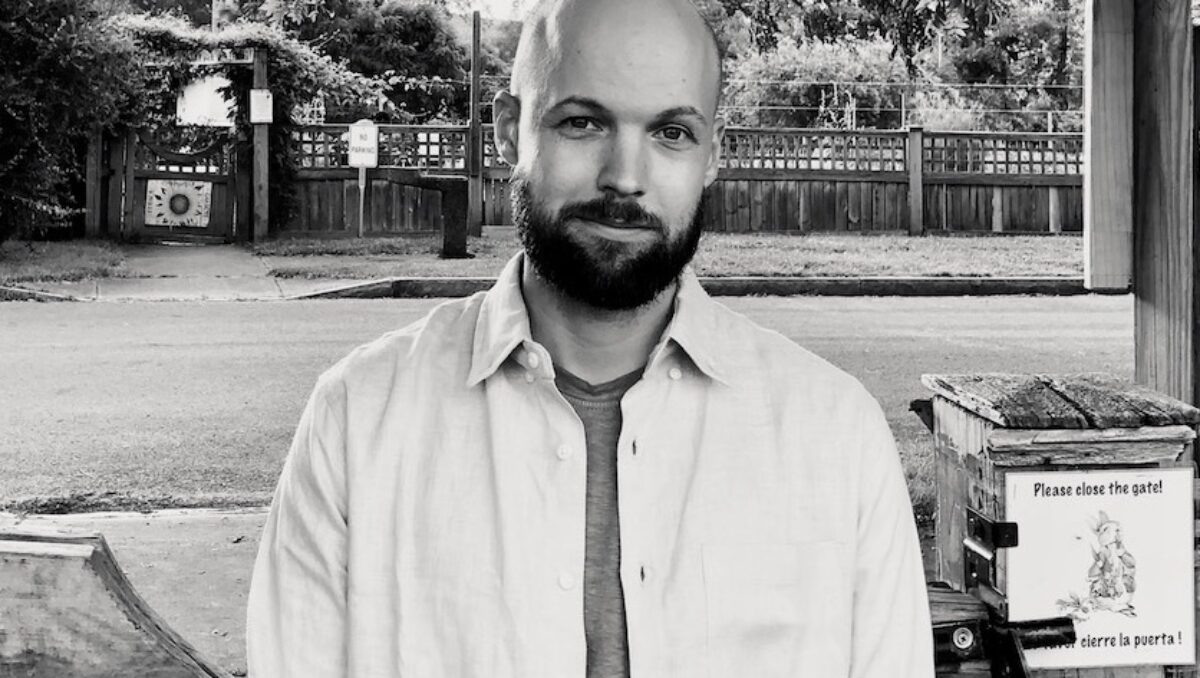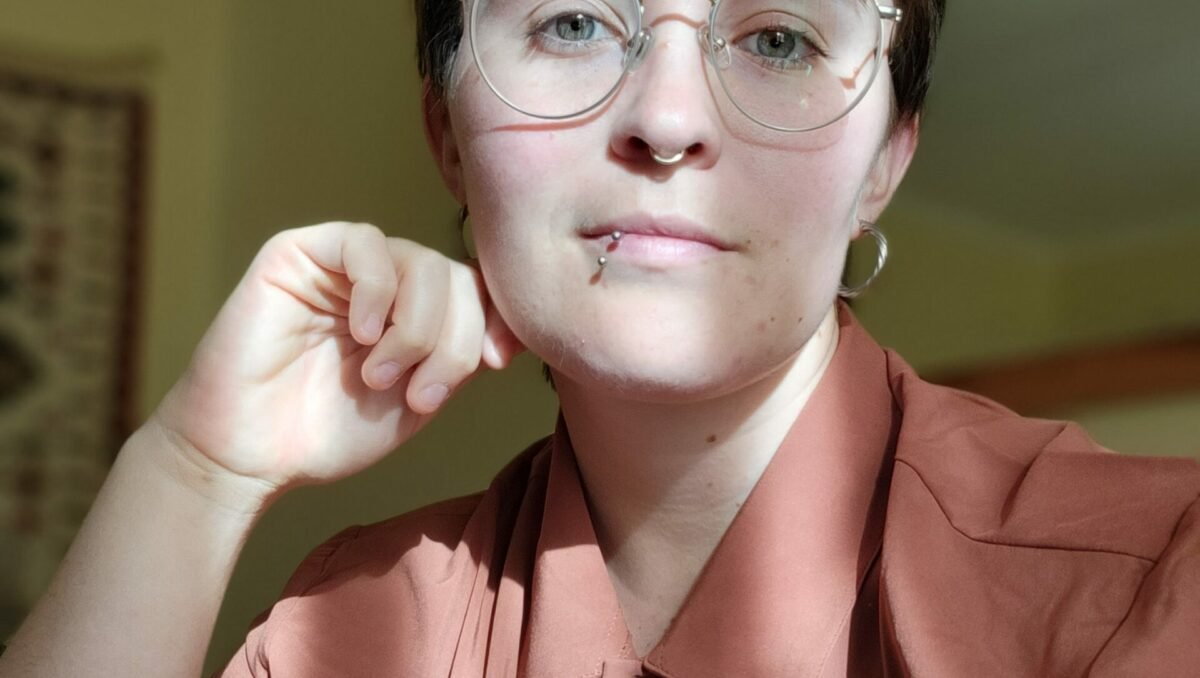& LORD KNOWS by Kwame Opoku-Duku
I’ve been guilty of losing track of what is holy—
the antique candle holder we used
to prop open the fire escape window in our
bedroom, or the song sparrow that flew inside one morning
and blessed us as we slept. I remember the
air flowing through my body, the buzz
of my hands trembling as we pursued
the bird with a Tupperware container,
catching it and releasing it back onto the
weathered rug out on the fire escape,
and the sound of the man shouting
to a friend across the street as I put
my body out the window to set the bird free;
in that moment, I was sure the man
had witnessed our awe and terror
until I saw his friend jogging lightly across the
street to hug him, and I realized he had not
seen us, not looked up even once. When you asked
me what I was feeling later that morning,
I had already forgotten about
the amount of air I felt in my body, and I said
I was wondering about the differences between
what is beautiful and what is real. What
I meant to say is, My love, I feel so small and
insignificant and so full of grief,
and I don’t think I understand anything.
In the afternoon, down by the Hudson,
we watched the sun set over New Jersey,
breathing in the wind dancing across the water,
and you touched the back of your hand
to mine and asked me, Are you not astonished?
while I stared mournfully toward the darkening horizon,
and as we walked back to our apartment,
they had opened a fire hydrant on our street,
and a woman—a beautiful woman
wearing a white linen dress—
held her baby over the spouting hydrant,
like an offering to God.
- Published in Issue 23
CALLS TO ORDER by Stephanie Kaylor
It is September and there is no love
cleaner: apples red as a ribbon
knotted around the white dove’s
broken neck. As schoolchildren,
we were brought into the orchards,
biting into Empires and tossing
what we didn’t want, told that
we always can. I grew too tall
too early, and still, in mazes built
of hay, pretended to not already see
the routes to all their naked ends.
- Published in Issue 23
TWO POEMS by Xochiquetzal Candelaria
COTIDIANA
Sometimes it is the air
entering from the cracked window above my bed
crisp and sharp with the smell of pepper-tree leaves.
Sometimes, it is how the ten year old boy
reads a book while balancing on his right foot,
left leg stretching toward the ceiling
nothing but his blue and white striped briefs to keep him warm.
Or it’s how the four year old girl, face stained with
blueberry juice, squawks, mimes
the beak of a Pterosaur before hiding in a cardboard
box, begging to be left there,
packed up in the dark just long enough to be
sure of what it would feel like to have
to fight her way out.
Each child takes turns,
until they crawl in together
to draw on the inside.
Sometimes it is the box itself,
the one the man carries
in “Michiko Dead.”
How he never puts it down.
Just moves it to his head
when his arms tire,
so he can go on
before bringing
it back to his chest again.
CALIFORNIA FIRES
As flames sweep across valleys
and smoke billows and plumes,
the sky blooms golden
like the pigment Caravaggio used
in 1591 when painting The Sacrifice of Isaac.
The old father’s hand pressing Isaac’s neck into
the ground, the gunmetal gray knife less yellow
near the boy’s slender, contorted shoulder. An angel
gripping Abraham’s wrist to stop him,
to let him know that God is pleased, that the boy
does not have to be butchered. The ram,
looking up, seems to say, take me
instead.
The fires burning all around, but out of frame.
The haze that highlights the old man’s wrinkled
forehead and Isaac’s open mouth is everywhere.
The flames disappearing whole orchards, houses,
twisting iron.
What is it about the human mind that resists
signs of destruction?
We hold out hope that, like Abraham, someone else
will save us from ourselves.
The trees on the hill, one cypress, one pine
are dying of thirst. I have avoided having
dogs up to this point because I was
afraid of caring for something that couldn’t
talk back, couldn’t say you understand nothing.
- Published in Issue 23
AN ORDINARY WEAKNESS by Mikko Harvey
The town needed a new mayor.
As usual, no one wanted to do it.
My severe anxiety makes me a poor candidate,
said one woman. Oh please, said a man.
That’s nothing. I am literally a psychopath.
The meeting had reached an impasse.
So be it, announced the eldest librarian.
Bring out Harold. The glass cage
containing the small yellow lizard
was fetched from its official chamber.
The librarian removed the lid and turned
the cage onto its side, allowing Harold
to step into the light. The crowd fell silent
in the presence of a cousin consciousness.
For ten seconds, Harold stood motionless.
I glanced at Angelika, who was staring
fixedly at the lizard. The stakes were high
for her—I knew that—and her furrowed
brow betrayed it. I stared at Harold too,
directly into his dark, indecipherable eyes.
He pivoted, took one step to his left, then paused.
Would he pick Delmore, as had long
been speculated? A whole tense minute
passed like this, during which he seemed
to be gazing at all of us at once—
and not just at us, but also at our children,
our decisions, and all of the awful music
we had allowed to grow popular.
Without warning, Harold turned
and ran back into his cage!
We rejoiced, even as the librarian
began to weep. Of course we understood
what this meant: we were free now
to destroy ourselves in peace.
- Published in Issue 23
SELF PORTRAIT AS MINOTAUR by Kiyoko Reidy
Years between these long
thin rooms. Life
of corridors, doorway
to a doorway. Along
one wall: onions line
a shelf, white bulbs
bright as bone in the cool
dark. Potatoes
heaped like golden
fists. Beneath the jaw’s
cusp: no rhythm. Denied
even the body’s
metronome. Here,
nothing rots:
root-home, wine-
keep. Always the bitter
edge of arrival, the mind’s
talent for suspension.
From above: whorl of these
walls, print of God’s
own massive finger, swirl
of his eye—and its center: me,
the pupil, black chasm,
lightless hallway.
This stagnancy: its own kind
of decay. I am the tunnel
into the mountain. I am more
beast every day.
- Published in Issue 23
- 1
- 2
